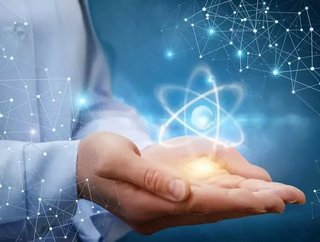U-M: Reducing nuclear energy costs with digital twin

The University of Michigan (U-M) has released details of a USD$5.2mn grant to research AI-enhanced digital twins in an effort to lower energy costs.
Part of the institution’s goal of attaining safer, more affordable nuclear power, the project is being supported on a three-year basis by Advanced Research Projects Agency–Energy, with additional support from national labs in Idaho and Argonne, as well as Kairos Power and Curtiss Wright.
Called SAFARI (Secure Automation for Advanced Reactor Innovation), the project’s aim is to address three prevailing drawbacks to the use of nuclear energy:
-
Increase the efficiency of maintenance by more accurately measuring when components need replacing, rather doing so, perhaps unnecessarily, according to fixed schedules.
-
Optimise the design of power plants to decrease daily operational costs.
-
To further integrate nuclear with other renewable energy sources (solar and wind) by allowing plants to ‘ramp up’ or ‘ramp down’ according to demand.
Problem-solving with digital twin tech
Based on highly accurate physics modelling software, a digital twin of a reactor will provide researchers with the ability to test new approaches in a safe, controlled environment. Based on the real-life design, the digital twin will receive real-time data from sensors monitored by AI.
Annalisa Manera, U-M professor of nuclear engineering and radiological sciences, emphasised the technological accuracy necessary to achieve the outcome the team was looking for:
SEE ALSO:
“Often, AI or machine learning is used as a black box. It doesn’t take advantage of the physics we know,” she said.
“On the other hand, approaches where you use only a physical model might suffer from inaccuracy because it is too idealised.”
Manera and her colleague, Thomas Downer, also a professor of nuclear engineering, have joint experience in developing high-fidelity coding which will facilitate the total simulation of an active reactor.
Combining physics with big data
Using the computer system ‘ConFlux’, overseen by Karthik Duraisamy, professor of aerospace engineering, the University’s team will leverage big data in combination with its physics expertise.
AI-driven process automation will streamline the maintenance schedule by detecting problems quickly, identifying possible solutions and then relaying projections of possible outcomes for each one.
Effective development of this system would not only reduce operating costs but also significantly increase the safety and flexibility of nuclear as an energy source.
Regarding the latter point, AI would also enable the smooth ramp up/down of power necessary to stabilise an increasingly renewable grid structure, particularly if combined with smart battery storage capabilities (VPPs).
U-M’s first move will be to trial its software using an experimental flow loop developed by Xiaodong Sun, professor of nuclear engineering. Following on from this, the team will work closely with Kairos Power to optimise its reactors.
For more information on energy digital topics - please take a look at the latest edition of Energy Digital Magazine.
- Tan Delta Technology Empowers the Sustainable Energy SectorRenewable Energy
- Debunking Silicon Carbide (SiC) Myths: The Real StoryTechnology & AI
- Clean energy technology: Rolls-Royce SMR’s nuclear solutionTechnology & AI
- Terabase raises US$25m for energy project construction techTechnology & AI






